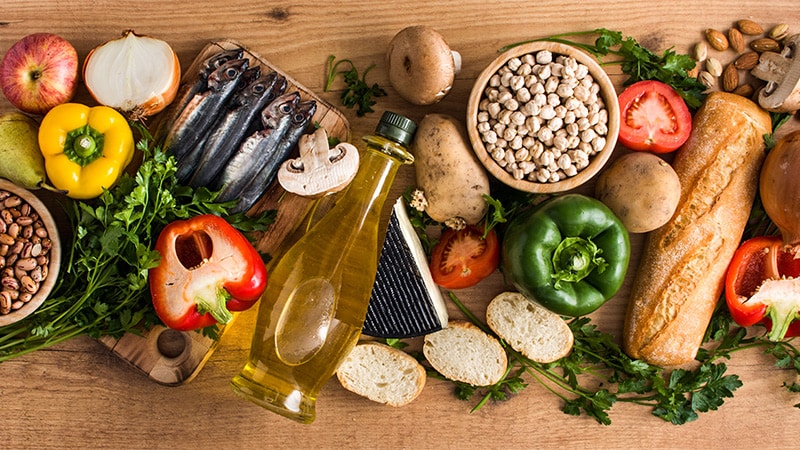A Mediterranean-style diet, rich in fruits and vegetables, has been demonstrated to significantly reduce the risk of depression. However, in order to optimise mental health, it is also necessary to supplement with vitamin D and omega-3s, according to Dr Guillaume Fond from Aix-Marseille University in France, who spoke during a presentation on nutritional psychiatry at the Journées Nationales de Médecine Générale (JNMG 2024).
In managing depression, “this supplementation should be considered before prescribing antidepressants”, alongside lifestyle changes that promote physical activity and a diet rich in fruits and vegetables, Fond told Medscape’s French edition.
“According to studies, it takes between 4 and 8 weeks to see a beneficial effect on depressive symptoms,” Fond explained, recommending a daily intake of 15 µg of vitamin D and up to 2 g of omega-3s, ideally from microalgae extracts, an alternative to fish oil. Zinc supplementation is also commonly recommended.
An Underrecognised Discipline
Fond believes this supplementation should also be considered, along with a healthy diet and physical activity, to prevent depressive symptoms. “It’s better to provide the brain with the nutrients it needs every day, rather than waiting for clinical symptoms and opting for high-dose treatments.”
Although nutritional psychiatry is still gaining recognition, clinical research continues to gather evidence on the impact of diet on mental health. This approach builds on discoveries about the interactions between the brain and gut, where both exert mutual influence, notably through the gut microbiota.
Studies have linked a reduction in bacterial biodiversity in the microbiota with an increased risk of anxiety and depression. Modern diets, which are characterised by high levels of processed foods and saturated fats, has been identified as a contributing factor to the impoverishment of the microbiota, Fond noted. “Our modern lifestyle has disconnected us from our environment, resulting in a collapse of biodiversity in our gut bacteria.” Today, in the Western world, “one in four healthy people has an altered gut microbiota”, he highlighted.
This has led researchers to explore the potential effects of probiotics on mental health. Studies have shown that certain strains of probiotics, known as psychobiotics, can impact stress, anxiety, and depression. The efficacy of probiotics in depression has also been demonstrated in several meta-analyses.
Modulating Gut Microbiota
Fond noted that the Mediterranean diet, with its high fibre content, provides essential nutrition to gut bacteria. Worldwide, diets with high vegetable content are associated with better mental health. French researchers found that a Mediterranean diet – rich in fruits, vegetables, fish, and grains – is associated with a 33% reduced risk of depression.
The study also found that a pro-inflammatory diet (rich in saturated fatty acids, sugar, refined products, and sweeteners) is associated with a higher risk of depression. Chronic inflammation potentially induced by this type of diet could be directly involved in the onset of depression, the authors suggested.
In a press release, Tasnime Akbaraly, an epidemiologist at the University of Montpellier, who led the study published in 2018, stated: “The results of our study highlight the importance of dietary habits in the onset of depressive disorders and encourage the inclusion of nutritional advice during medical consultations.”
More recently, a meta-analysis reported a 33% increased risk of depression with a pro-inflammatory Western diet, while daily fruit consumption reduced this risk by 15%. Daily vegetable consumption lowered it by 9%.
Vitamin D and Omega-3 Deficiencies
However, according to Fond, diet alone is not enough to meet nutrient needs. He pointed to evidence showing that vitamin D and omega-3 deficiencies are widespread, both of which play a crucial role in maintaining mental health.
A 2021 report by the French national agency for food safety (Agence nationale de sécurité sanitaire de l’alimentation — ANSES) found that more than 70% of French adults had insufficient vitamin D intake (circulating 25 (OH)D levels <20 ng/mL). Vitamin D deficiency (25 (OH)D <12 ng/mL) affected 15% of adults. Sun exposure is the main source of vitamin D, but at least 25 minutes of exposure to a significant portion of the body is necessary. In France, fish consumption (sardines, mackerel, herring) and dairy products contribute a significant portion of vitamin D intake (19% and 25%, respectively, in adults), according to ANSES.
An American meta-analysis showed that vitamin D supplementation significantly improved depressive symptoms. Although the benefits of vitamin D supplementation remain a topic of debate, there is growing support for its use in adulthood, given the accumulating evidence linking this deficiency to the development of various pathologies.
Omega-3 Sources and Sustainability
Nearly all French adults lack sufficient omega-3, especially alpha-linolenic acid (ALA), which can be converted into eicosapentaenoic acid (EPA) and docosahexaenoic acid (DHA). Plant oils, like walnut oil, are rich in ALA, although only 20% converts to EPA and 1% to DHA, underscoring the need for dietary fish intake.
However, Fond cautioned against recommending weekly fish consumption due to dwindling pelagic resources. Wild fish are higher in omega-3 than farmed fish, which are often fed on plant-based meals.
The 2022 guidelines from the World Federation of Societies of Biological Psychiatry and the Canadian Network for Mood and Anxiety Treatment highlighted the strong evidence supporting omega-3’s effectiveness in treating depression. “Omega-3s have the highest level of evidence for efficacy in treating depression,” Fond emphasised.
Dr Guillaume Fond is a psychiatrist specialising in psychonutrition, with a doctorate in neuroimmunopharmacology. He is also a teacher, researcher, and author of ‘Eat Well to Stop Being Depressed’ (Odile Jacob editions).
This story was translated from Medscape’s French edition using several editorial tools, including AI, as part of the process. Human editors reviewed this content before publication.


Dining and Cooking